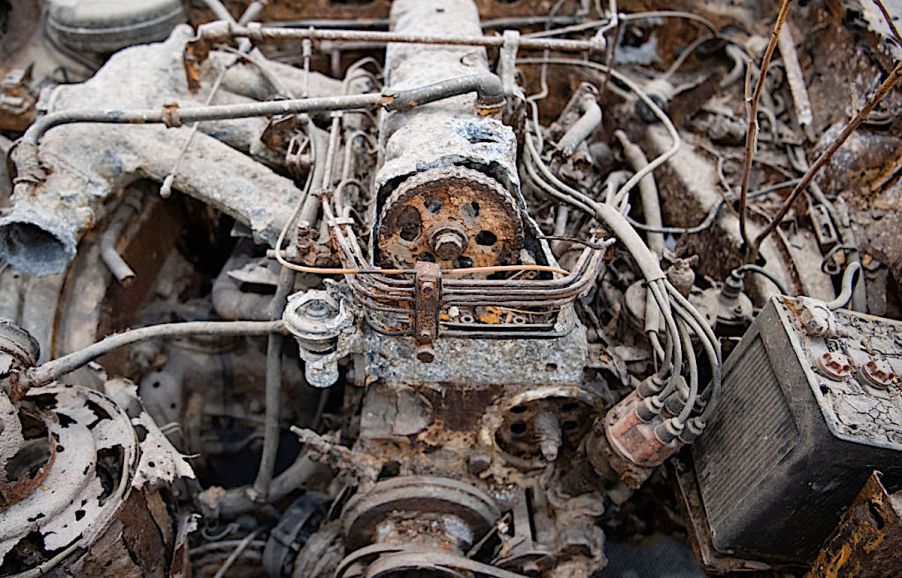
Is Your Engine Making Strange Noises? One of These Could Be the Reason
You can hear it, and you know it’s not good. That noise coming from your car’s engine. What is it? Is it something serious? Without doing some investigation, it could be anything. It could even be a piece of cardboard flapping in your wheel well. But to get you in the ballpark for finding out what the noise is, here are some suggestions based on the engine noises your car makes.
Piston Rings-Clicking noise when accelerating

Though not the most common of engine noises, it is usually an issue with the pistons. This can mean broken piston rings or the tension holding them into the piston ring grooves is loosening. It can also be a sign of worn cylinder walls according to Bell Performance.
One way to give a preliminary check is to put a small amount of oil into each cylinder. Then, crank over the engine with the spark plugs still out, to work the oil into the cylinders. After that, reinstall the plugs and start the engine. If the noise becomes muffled or stops completely, then it is the piston rings.
Piston slap
The noise will be low and somewhat hollow sounding. This can be an indication of worn cylinders or the engine needs more oil. If it is more prevalent when the engine is cold, it may just mean the engine needs to warm up.
Crankshaft knock

This makes a dull, knocking sound that increases or decreases with the rpms of the engine. This can be crankshaft main bearings are worn. You may notice a slight metallic look to the engine oil on the dipstick. If the engine oil is too low, it can cause the mains to burn, causing the same effect.
Usually, this requires an engine rebuild because worn main bearings are scarred or there is damage to the crankshaft journals. And if you’re rebuilding the bottom end of the engine, you might as well rebuild the cylinder heads, too.
Valvetrain noise
This can be a bit deceiving. It could be that the ticking noise you hear are valves needing adjustment. But in some engines, especially the 5.7 Hemi engines in Dodge, Jeep, Ram, and Chrysler products, it can sometimes just be the tick of the electronic fuel pump.
Try to isolate the engine noise to see where it is coming from. If it comes from the valvetrain, the valves should be adjusted. That’s a fairly easy repair. The noise can also be worn lifter faces or flattened lobes on the camshaft.
Pinging noise on acceleration

This is most often preignition. This means the engine timing is too advanced, the fuel mixture is too lean, or you need higher octane gasoline. Sometimes, a water injection system, which is fairly easy to install, will fix the noise.
Piston pin noise
The piston pin connects your pistons to the piston rods. Again, this is not very common, but the noise makes a double-knock sound when idling. Low oil levels or a loose piston pin can be the cause.
Many of these problems require expensive rebuilds. These noises mostly occur with high-mileage vehicles, which may not be worth the cost of the repairs. But at least you can get a headstart before taking it to your mechanic.



